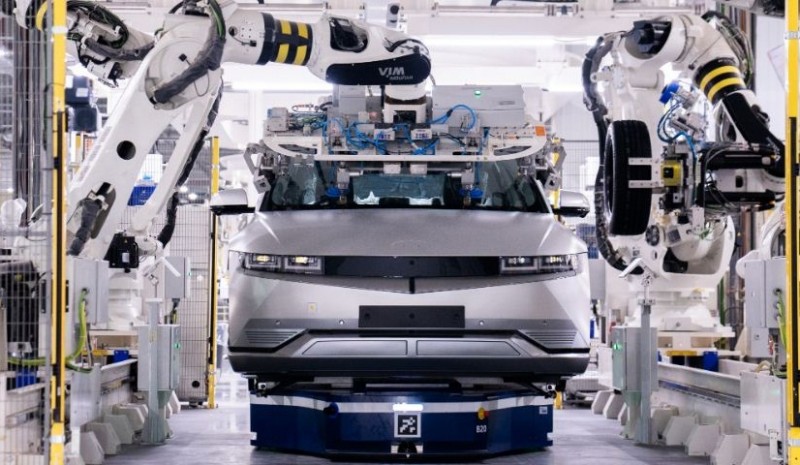
India has given the green light to its Electric Vehicle (EV) policy, with a vision to position the country as a global hub for e-vehicle manufacturing. This move, announced by the Government on Friday, opens up opportunities for companies to import a limited number of cars with reduced customs duty, on the condition that they establish manufacturing facilities within India.
The freshly introduced EV policy, spearheaded by the Ministry of Commerce, is expected to benefit major global EV players like Tesla and Vinfast. However, it might pose challenges for domestic giants such as Tata Motors and Mahindra & Mahindra.
Under the new policy framework, companies are required to make a minimum investment of 4,150 crore ($500 million), with no upper limit imposed. They are given a timeframe of three years to set up manufacturing units and commence commercial production of e-vehicles in India.
To encourage localization and domestic value addition, companies must achieve a 25% localisation level by the third year and escalate it to 50% by the fifth year.
In a bid to facilitate imports, the policy grants companies the privilege to import e-vehicles at a reduced customs duty of 15% for five years, specifically for Completely Knocked Down (CKD) units. However, this benefit is applicable only to vehicles with a Cost, Insurance, and Freight (CIF) value of $35,000 or higher.
This move marks a substantial decrease from the existing import tax, which stands at a staggering 70% or 100% depending on the vehicle's value. Such adjustments could potentially smoothen Tesla's plans to enter the Indian market.
Additionally, the total number of EVs eligible for import will be determined by either the total duty foregone or the investment made, whichever is lower. However, this is capped at 6,484 crore, equivalent to the incentive provided under the PLI scheme.
Under this scheme, the import of not more than 8,000 EVs per year will be allowed, with the provision for the carryover of unutilised annual import limits.
Companies are required to back their investment commitments with a bank guarantee instead of relying solely on customs duty exemptions. The bank guarantee will be enforced in case of non-compliance with the defined criteria for domestic value addition and minimum investment as outlined in the scheme guidelines.
Discount offer of Rs 2.65 lakh on Tata Nexon EV, discount on Tiago and Tigor EV also
This Tata SUV rescues Nexon-Brezza-Creta! Selling hot, mileage 27kmpl
Volvo launches new single-motor variant of XC40 Recharge, priced at Rs 54.95 lakh